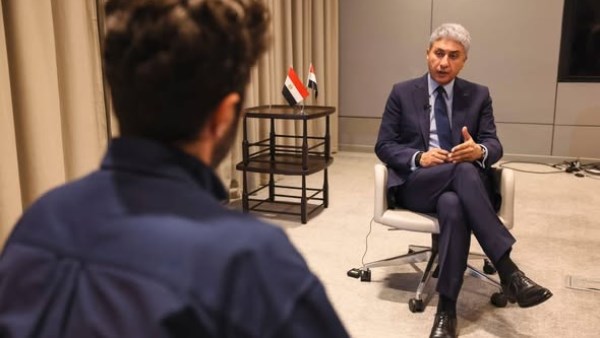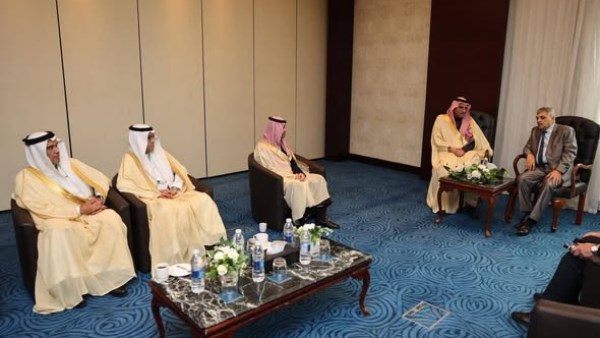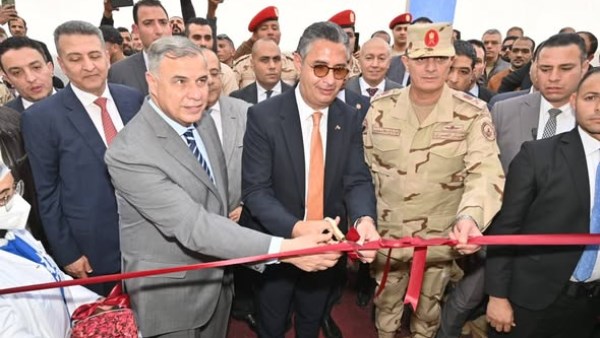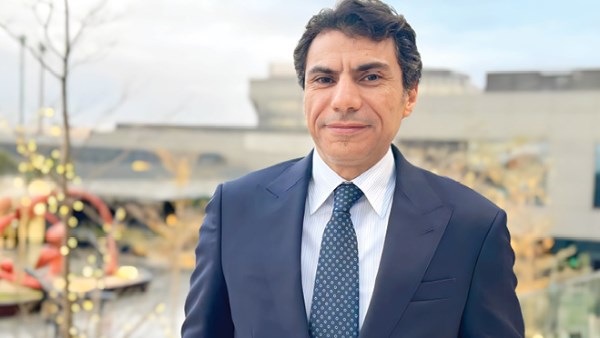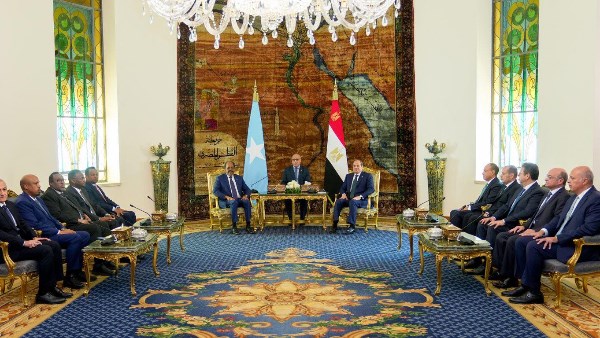
Money flowed out of the city when many of its super rich left for Singapore
Hong Kong courts ultra-rich Middle East families in wealth push

Hong Kong is zeroing in on rich Middle Eastern investors as it looks for new pools of capital to boost its status as a wealth management hub.
Interest groups in the city have invited more and more guests from the Gulf’s ultra-wealthy clans and family-linked entities over the past two years at a pace unseen before the Covid-19 pandemic، according to about half a dozen observers interviewed by Bloomberg News.
The move responds to a steady outflow of foreign investors، taking the shine off Hong Kong as the gateway to China.
Just last week، executives heading two of the biggest Abu Dhabi and Saudi Arabian philanthropies، both founded by members of the royal families، spoke at an event organised by the Hong Kong Jockey Club Charities Trust.
Hong Kong's charm offensive
Hong Kong’s push has continued even after an embarrassing situation in March، when the credentials of a guest speaker at a government-sponsored summit، who claimed on his website that the ruler of Dubai was his uncle، were questioned.
The growing ties are part of Hong Kong’s charm offensive to show that it isopen for international business.
Money flowed out of the city whenmany of its super rich left for Singaporeand other locations during the draconian Covid-19 restrictions and sweeping crackdowns against political dissent.
At the same time، Beijing is stepping up financial and investment links with the oil-rich region.
“Hong Kong is trying really hard to attract rich Gulf families،” said ProfessorHao Gao، director of Tsinghua University’s PBCSF Research Centrefor Global Family Business. “Those are the clans that dominate the economy and can exercise outsized influence.”
For the Gulf investors، Hong Kong provides a fund-raising platform for Middle Eastern businesses to expand. It is also a springboard to access the mainland market.
“China، Hong Kong and the Middle East are at an all-time high in terms of geopolitical relations،” said MrPatrick Tsang، the chief executive officer of family office Tsangs Group. He، along with MrJeffrey Lam Kin Fung، an adviser to Hong Kong’s government، founded the Ambassadors Club in 2023 to boost the city’s status as a business hub.
The number of Gulf VIPs in the city stood out last week.
Among them was Princess Nouf Muhammad Abdullah Al Saud، the chief executive of Saudi Arabian non-profit the King Khalid Foundation، who was in the city for the first time in 15 years.
Another visitor was the Khalifa bin Zayed Al Nahyan Foundation director-general Mohamed Haji Al Khoori.The foundation was set up in 2007 and is one of the biggest within the emirate of Abu Dhabi.
An Ambassadors Club event in Hong Kong last week featured Gulf-based speakers Yaser Al Yousuf، Abu Dhabi Investment Office’s director of investor relations، and Marwan Al Marri، the regional director for Asia at the Dubai Chambers، and more.
The presence of the new arrivals is already making its mark in Hong Kong.
Increasing the number of restaurants
Mr Tsang and Mr Lam said they are working with businesses in the city to increase the number of restaurants، food suppliers and hotels that are halal-certified. They also want to distribute halal kits to hotels، so they can serve guests even if their kitchens are not fully prepared.
Hong Kong also held its first LIV Golf –the upstart competition backed by Saudi Arabia’s US$925 billion (S$1.2 trillion)sovereign wealth fund – event earlier in 2024، and another is planned for 2025.
Travel between the city and Saudi Arabia is also becoming easier.
Hong Kong’s flagship carrier Cathay Pacific Airways is set to resume direct flights to Riyadh from Oct 28، while Emirates Airlines opened an immersive travel store in the heart of Hong Kong’s financial district in July، amid hopes that talks between the United Arab Emirates (UAE) and China would pave the way for more flights.
Visitor arrivals to Hong Kong from Gulf states including Bahrain، Kuwait، Oman، Qatar، Saudi Arabia and the UAE increased 136 per cent in the year to July compared with the same period in 2023، with more than 16،000 people arriving، according to Hong Kong Immigration Department statistics.
A global hub for family offices
Hong Kong is placing an emphasis on becoming a global hub for family offices – and the Middle East is part of that plan.
There were more than 2،700 single family offices in the city at the end of 2023، according to estimates in a government-commissioned study by Deloitte، with the majority from Chinese families. The government has introduced tax and residency incentives to attract more.
The more frequent arrival of Gulf visitors comes against a background of political moves. China’sPresident Xi Jinping visited Saudi Arabia in late 2022 and pledged to buy more oil and strengthen overall ties with the kingdom.
Hong Kong’s Chief Executive John Lee said at last week’s Ambassadors Club event: “The Middle East، of course، is an important partner for our country، and a key link in the Belt and Road Initiative.”





-1120252475029447.jpg)



